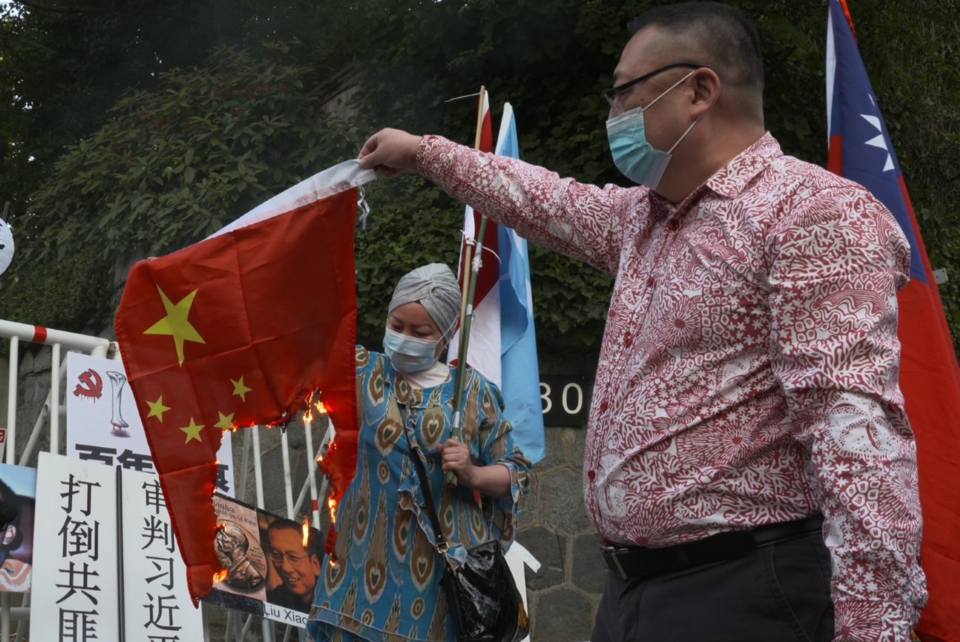A collective of civic groups dedicated to human rights progress in China, Taiwan, Tibet and Hong Kong has launched an election campaign to press federal election candidates’ on their positions towards the Chinese Communist Party.
The ‘Can Xi Not’ campaign is a play on words, in reference to China’s president Xi Jinping, who, since 2012, is widely recognized as bringing more centralized and authoritarian rule over Chinese citizens while attempting to do the same in several disputed territories. Xi has also launched a more aggressive foreign investment plan, is alleged to be conducting more foreign espionage and has attempted to assert greater influence on ethnic Chinese residents in foreign countries, such as Canada.
It’s these issues that are at the core of the Can Xi Not campaign, as it surveys candidates.
“One of the biggest challenges the Canadian government faces today is the rise of authoritarianism around the globe, including Beijing and the Chinese Communist Party (CCP),” the group claims.
“But the threat of the CCP isn’t limited to the physical borders of the occupied territories of the People’s Republic of China. The CCP is aggressively expanding their influence and interference in Canada.”
The group consists of several B.C.-based groups, including Alliance Canada Hong Kong, Vancouverites Concerned About Hong Kong, Canadian Friends of Hong Kong; and the Vancouver Society in Support of Democratic Movement. These groups often protest outside the Chinese embassy on matters such as increased police surveillance and authoritarian control in Hong Kong, mass persecution of Uyghur Muslims and military threats against Taiwan. As it relates to Canada, the groups are specifically concerned about CCP-led tactics of intimidation, bribery and threats against ethnic Chinese Canadian citizens and alleged, unchecked foreign influence activity by the CCP’s United Front Work Department.
The campaign emailed the five political parties with elected seats from the 2019 election and asked for their responses by Aug. 28.
They asked for a pledge to “combat foreign influence and interference operations” in Canada, with measures such as a public commission on foreign influence and policies to counter authoritarian state actors in Canadian research.
They ask candidates if they support punishing individuals who are human rights abusers with “Magnitsky-style” sanctions, which can result in asset freezes and entry bans.
They also ask if a candidate will commit to banning imports from forced labour and “diverting and diversifying Canada’s economy away from authoritarian regimes.”
While many questions can relate to other regimes as well, there is one specific to China: whether a candidate will support a boycott of the Beijing 2022 Winter Olympics.
Answers to questions will be uploaded to canxinot.weebly.com.
Outside of the campaign, other political issues at the forefront of Canada-China relations include how a party will handle the extradition process of Huawei CFO Meng Wanzhou and numerous Canadians held in Chinese prisons.
Furthermore, parties have clashed on releasing information concerning potential leaks out of the National Microbiology Lab in Winnipeg to China’s Wuhan Institute of Virology. The governing Liberals have withheld information, requested by all other parties, on the firing of China-born Canadian scientists Xiangguo Qiu and Keding Cheng, who were known to conduct pathogen research in Wuhan, some of it related to coronavirus vaccines.
There is also a pending decision on Huawei’s role in Canada’s telecommunication networks.
Based on platforms posted online, it appears the Liberals have no international policy proposals, let alone any related to China. The Greens and the Bloq also make no mention of China.
Conversely, the Conservatives mention China 31 times. In their plan they propose to diversify to reduce economic dependence on China; withdraw from the China-led Asian Infrastructure Investment Bank; counter China’s growing military presence in the Arctic; ban Huawei from Canada’s 5G infrastructure; and “ensure that Canadian development assistance will not advance the Communist Party of China’s Belt and Road Initiative.”
The platform has a section called “Standing Up to China’s Aggression,” wherein the Conservatives note the “quarrel is not with the people of China.”
The Conservatives pledge to “do everything to ensure that the 2022 Beijing Winter Olympics is not a platform for China’s global propaganda.”
The Conservatives state they will end special economic treatments for Hong Kong now that it is under Beijing’s control and will create an immigrant stream for pro-democracy refugees from the city, including waiving arrests and convictions related to pro-democracy protests.
Meanwhile, the NDP has one paragraph noting China in its human-rights focused international policy outlook. It states: “A New Democrat government will stand up to China with a strong and coherent strategy to defend Canadian interests at home and abroad. We will work with our allies to lead a robust and coordinated international response to China’s disregard of the rule of law. New Democrats will call out human rights abuses by China, stand with Hong Kong pro-democracy asylum seekers, and provide coordinated support for those facing threats by Chinese entities here in Canada.”


